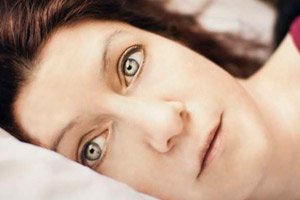
All iLive content is medically reviewed or fact checked to ensure as much factual accuracy as possible.
We have strict sourcing guidelines and only link to reputable media sites, academic research institutions and, whenever possible, medically peer reviewed studies. Note that the numbers in parentheses ([1], [2], etc.) are clickable links to these studies.
If you feel that any of our content is inaccurate, out-of-date, or otherwise questionable, please select it and press Ctrl + Enter.
Women sleep less and wake up more often than men
Last reviewed: 02.07.2025

Women sleep less, wake up more often and get less restorative sleep than men, according to a new animal study led by researchers at the University of Colorado Boulder.
The study's findings, published in the journal Scientific Reports, shed new light on the reasons for sleep differences between men and women and could have broad implications for biomedical research, which for decades has focused largely on men.
"In humans, men and women exhibit differences in sleep patterns that are often explained by lifestyle factors and caregiving roles," said lead study author Rachel Rowe, an assistant professor of integrative physiology. "Our findings suggest that biological factors play a larger role in shaping these differences than previously thought."
Underrepresentation of Women in Sleep Research
Sleep research has expanded dramatically in recent years, with thousands of animal experiments examining how sleep deprivation affects the risk of diseases such as diabetes, obesity, Alzheimer’s, and immune system disorders. These studies also examine how such diseases affect sleep. Mice are often used to test new drugs, including sleep medications, and analyze their side effects.
However, the results of many such studies may have been skewed by underrepresentation of females, the study says.
"We found that the most common mouse strain used in biomedical research exhibits sex differences in sleep behavior. Failure to account for these differences could lead to misinterpretations of the data," said study first author Grant Mannino.
How do mice sleep?
For the non-invasive experiment, the scientists used specialized cages with ultra-sensitive motion sensors to assess the sleep patterns of 267 C57BL/6J mice.
Males slept an average of an hour more than females, spending about 670 minutes a day asleep. This difference was largely due to more non-rapid eye movement (NREM) sleep, which is considered restorative.
Mice are nocturnal animals and polyphasic sleepers: they doze for a few minutes, then wake up to assess their surroundings, and then go back to sleep. In females, this sleep cycle was even more fragmented than in males.
Evolutionary assumptions
Similar sex differences in sleep have been observed in other animals, such as fruit flies, rats, zebrafish, and birds. From an evolutionary perspective, this may be because females tend to be more sensitive to their environments, as they are usually the ones caring for their offspring.
"If we slept as soundly as males, we wouldn't be able to continue to exist as a species," Rowe explained.
Stress hormones such as cortisol and sex hormones likely play a role as well. For example, women often report poorer sleep quality during phases of the menstrual cycle when estrogen and progesterone levels are at their lowest.
Significance for biomedical research
Since 2016, the National Institutes of Health has required scientists to include sex as a biological variable when applying for funding for animal research. Despite this progress, male-bias still exists, which can have serious consequences.
For example, if drugs are tested primarily on males, their effectiveness in women may be underestimated, and side effects that are more pronounced in women may go unnoticed.
"The journey from the lab to the patient takes decades. It may be delayed because of a lack of attention to gender as a variable," Rowe said.
The researchers call for studies to include both sexes, analyze data separately for males and females, and reexamine the results of past studies where women were underrepresented.
"The most surprising discovery is not that males and females sleep differently, but that this has not been clearly demonstrated until now," Rowe added. "We should have known this long before 2024."
